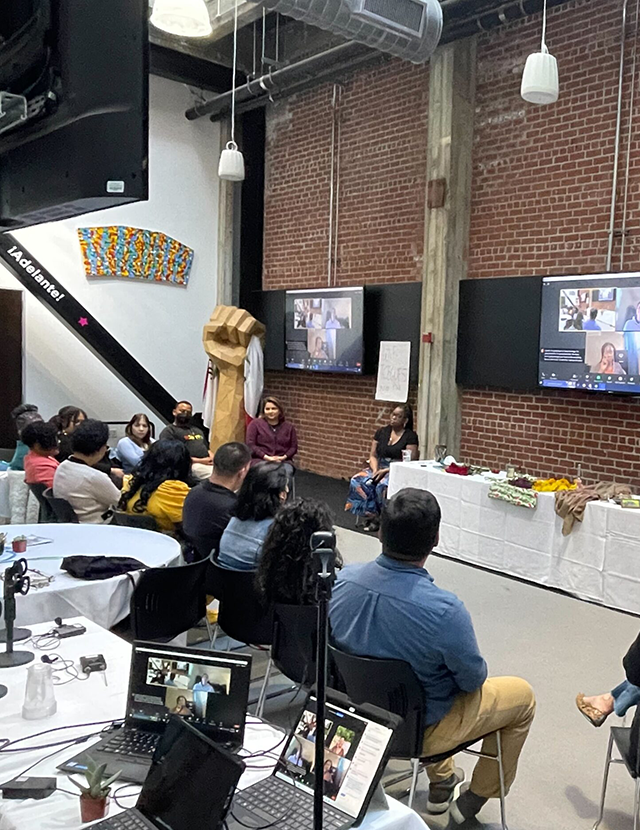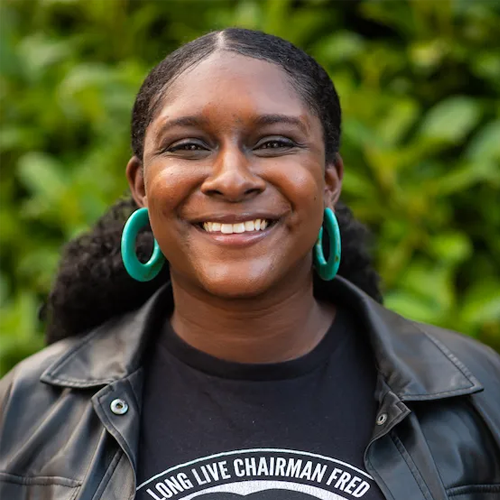Partnering with California State Government to Prevent Violence and Promote Safe, Equitable Communities
Program
Highlights

In 2024, PHI's State of Equity, Communities United for Restorative Youth Justice (CURYJ) and the California Strategic Growth Council launched the Safe & Equitable Communities Roundtable, a space for California State government change agents to organize at the intersection of violence prevention, safety, equity and health.
12+ state departments and offices have participated in the Safe & Equitable Communities Roundtable
-
Focus Areas
Capacity Building & Leadership, Healthy Communities -
Issues
Health in All Policies, Violence Prevention -
Expertise
Coalition & Network Building
The same conditions that impact community health also impact safety, and a successful approach to improve either must address both. That’s why PHI’s State of Equity teamed up with Communities United for Restorative Youth Justice (CURYJ) and the California Strategic Growth Council to launch the Safe & Equitable Communities Roundtable, a space for California State government change agents to organize at the intersection of these interconnected issues.
Together, State of Equity and partners are working to transform California’s approach to violence prevention by centering and supporting community-led, police-alternative solutions to promote safety in a holistic and systemic manner and address violence in all forms.

At CURYJ, we believe those closest to the problem are also closest to the solutions. The Safe and Equitable Communities Roundtable is a space where directly impacted people can engage in an exchange with government employees as we work to strengthen and shift narratives regarding community safety.Ray’Von Jones
CURYJ Dream Beyond Bar Program Manager
The Roundtable, part of the California Health in All Policies (HiAP) Task Force, seeks to address key problems in many current approaches to violence prevention and community safety. These problems include a lack of a holistic vision for community well-being, fragmented programming, leadership and responsibility—and an over-reliance on punitive practices and policing, which both perpetuate violence and exacerbate racial inequities.
California communities, especially Black, Indigenous, and People of Color (BIPOC) communities, have been harmed by these antiquated approaches to health and safety, and instead are creating localized solutions that better address their needs. Across the country, innovative community-based organizations and leaders have taken it upon themselves to tailor intervention programs that break the cycle of violence at all levels.
State and city leaders have noticed and taken action: for example, Michigan, Colorado, North Carolina, New Jersey and Illinois have also created state-level offices to support and coordinate community-driven prevention efforts. At the city- and county-level, California has created offices to support community-led initiatives, such as Oakland’s Department of Violence Prevention, Richmond’s Office of Neighborhood Safety and Los Angeles’ Office of Violence Prevention. These offices coordinate and support efforts from across their city or county by:
- Funding community-based organizations.
- Leading inter-agency coordination that encourages a “whole-of-government” approach to violence.
- Coordinating comprehensive and data-informed planning, implementation, and evaluation.
- Liaising with local law enforcement.

To meaningfully support safety and resilience for all our communities, we must ensure those who are most vulnerable are at the center of the effort to find solutions. We’re proud to work with the Safe and Equitable Communities Roundtable to uplift and support community-driven strategies and initiatives across state government. By coming together, we’re taking an important step toward justice, equity, and safety for all.Christina N. Teixeira
California Civil Rights Department Attorney
By leveraging community wisdom and expertise, state governments have an opportunity to demonstrate what holistic, community-driven, police-alternative solutions to violence prevention and safe communities can truly accomplish. In California, the Safe & Equitable Communities Roundtable is one step toward this goal, using several approaches to deepen state government’s commitment to community safety with a racial justice lens, such as:
- Developing a narrative change strategy that activates a shift within California state government leaders and workers to internalize a reality of shared fate, shared humanity, and abundance.
- Designing opportunities to collaborate with and support existing internal champions within California state government who can practice innovation-inside-of-government to advance the shared vision of this collaboration.
- Identifying and act on current opportunities to shift policy and practice to advance community safety and community justice priorities as already established by communities most directly impacted by the harms of current public safety practices.
- Encouraging and enable local governments to support community-led alternatives via guidelines, promising practices and more.
As of May 2025, staff from over a dozen state departments and offices have participated in the Roundtable, including the California Departments of Public Health; Social Services; Civil Rights; Fish & Wildlife; Parks & Recreation; Fire & Forestry Protection; Office of Planning & Research; Racial Equity Commission; Environmental Protection Agency; Public Utilities Commission; Health and Human Services Agency. and the First 5 Commission.
Explore the following resources for more information about State of Equity’s approach to preventing violence:
- Reimagining Community Safety (2024)
- Beyond Violence Prevention (2021)
A version of this impact story first appeared in a State of Equity newsletter and as a blog on their website.
Work With Us
You change the world. We do the rest. Explore fiscal sponsorship at PHI.
Support Us
Together, we can accelerate our response to public health’s most critical issues.
Find Employment
Begin your career at the Public Health Institute.
